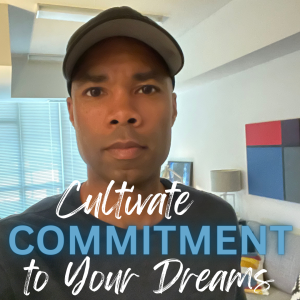
I was in my late-teens/early-twenties when I realized I wanted to be a writer. I didn’t know, then, what it meant to be a writer. And when I thought about writing, and what a writing life looked like, I immediately thought about Stephen King, Maya Angelou, Margaret Atwood, and Iris Murdoch (among others). These writers defined writing for me because they were successful and had carved out a writing life for themselves. I was, however, still young and naïve, and I didn’t understand what had allowed them to reach the pinnacle of their careers: commitment.
Commitment is Key
 To see how various artists and creators have, over the span of hundreds of years, demonstrated commitment to their craft, Mason Currey’s book, Daily Rituals: How Artists Work, offers a good introduction. Currey examines people’s routines that not only exemplified their commitment but, ultimately, made them relentless and great. Toni Morrison, for example, for the longest time wrote fiction in the evening, then switched to morning writing. 1 Stephen King writes every day until he meets his quota of two thousand words. 2 Maya Angelou was never able to write at home and rented a hotel room, and usually stayed there until 2:00 pm. 3
To see how various artists and creators have, over the span of hundreds of years, demonstrated commitment to their craft, Mason Currey’s book, Daily Rituals: How Artists Work, offers a good introduction. Currey examines people’s routines that not only exemplified their commitment but, ultimately, made them relentless and great. Toni Morrison, for example, for the longest time wrote fiction in the evening, then switched to morning writing. 1 Stephen King writes every day until he meets his quota of two thousand words. 2 Maya Angelou was never able to write at home and rented a hotel room, and usually stayed there until 2:00 pm. 3
The Art of Success
For any goal, we must be willing to commit to do what’s necessary to achieve it. The actions we take, or don’t take, demonstrate our commitment. I have never been able to write in the evening, even though I’ve wanted to—especially now with my current day job taking up a lot of my time and energy. Whenever I settle in for an evening writing session, I am easily distracted. It takes longer to get the words down on the page (longhand or on my laptop) as I often struggle just to keep my eyes open. And when I review what I wrote the next morning, it’s usually inconsistent, somewhat incoherent, and riddled with spelling and grammatical errors. Basically, it’s shit, and I throw it out and start again.
Routine Matters
I am most creative, and do my best writing, in the early morning hours when the rest of the world (or at least most the Eastern Time Zone) is still asleep. I am up by 3:00 am, or shortly thereafter, and at my desk ten minutes later. A few weeks ago, I swapped coffee for water as I write my Morning Pages. After a quick twenty-minute workout, I work on the day’s writing project—a novel, short story or blog post. Sometimes I’m getting new words down, other times I’m editing or proofreading. This is my most creative time, or my ‘biological prime time.’4 Yes, routine keeps me grounded and helps me do the work.
The Power of Commitment
In our fast-paced, 24/7, always-on world, there are many things challenging our commitment to our goals and dreams. Family. Friends. Work. Social media. Even our health. Remember, as Tim Grover explains in Relentless: From Good to Great to Unstoppable, that “part of the commitment to hard work is knowing what you have to give up to do the work…learning to control whatever pulls you away from your mission).5
Take a moment to evaluate your commitment to your goal(s). Is there anything you can—must—do to up the ante? If so…do it now!
1 Currey, M. (2018). Daily Habits: How Artists Work, New York, Alfred A Knopf, p. 62.
2 —., p. 224.
3 —., p. 122.
4 Our ‘biological prime time’ is a term coined by Sam Carpenter, author of Work the System. I learned about this concept through Chris Bailey’s book, The Productivity Project: Accomplishing More by Managing Your Time, Attention, and Energy (p. 46).
5 Grover, T. (2013). Relentless: From Good to Great to Unstoppable, New York, Scribner, p. 170.
[…] am trying again. Reducing sugary treats is not about depriving myself. It’s about doing the hard things now for […]